
After the pertinent analysis of the interior design and habitability of the Volkswagen Golf VII, the time has come to start with the most important part of the test, the dynamics. We will analyze the behavior of the engine-transmission assembly, the 2.0 TDI of 150 horses with a six-speed DSG gearbox, to see what it offers us and to find out why the Golf is such an acclaimed and successful model in the European market.
The test unit is promising, since we are facing the most powerful diesel in the range, with the exception of the 184 hp Golf GTD, associated with a DSG gearbox that has always stood out for its efficiency and driving pleasure. The tested model is front-wheel drive, although there is 4Motion all-wheel drive in the 150 hp TDI, but only with a manual transmission.
As soon as the engine is started, its diesel cycle is not hidden. The engine is perceptible, like any diesel, although the soundproofing of the passenger compartment is very good and vibrations are not transmitted either. In progress it is not particularly noisy either and for the stops we have the Stop & Start that helps to reduce consumption and is quite tuned. In any case, nothing like the refinement of a TSI engine, if that is what we are looking for.
The DSG gear selector travels are smooth and allow us to select speeds without effort or complicated labyrinthine movements. Then all we have to do is release the brake for the car to start moving. It's pretty quick off the start, even off the throttle, so it's wise to use the brake carefully for maneuvers in tight spots.

In the times we live in, everything seems little to us and many 150 horses will seem little. It is little short of crazy to say that it is little, when most compact C-segment diesels are around 115 horsepower and do not move badly. In this case our Golf does the 0-100 in 8,6 and the truth is that we may have the feeling that it is a car that does not run as it should because It's very progressive throughout the rev range. And that is thanks to the DSG change, which hides the few lows of this TDI engine that could be seen in the test of the Skoda Octavia Combi. Whoever looks for a kick here will not find it.
With this 2.0-liter diesel engine, the Volkswagen Golf is exceedingly agile, even with all seats occupied. We won't find any problems when it comes to overtaking. In addition, our unit had the adaptive regulation of DCC undercarriage, which modifies the throttle, gear, steering and even climate response depending on the selected mode (Eco, Normal and Sport, as well as a customizable one). It is a highly recommended option, although it costs a whopping 975 euros.
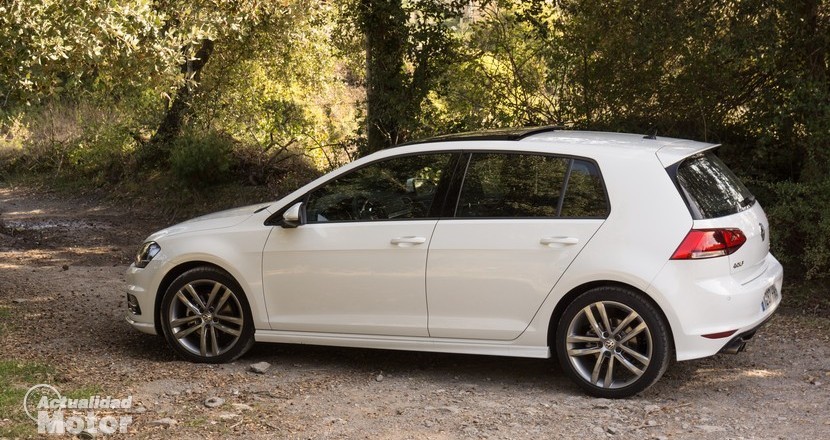
When selecting the Sport mode is where the changes come to light the most, since the car has a more agile response, due to a more sensitive accelerator and a gearbox that holds the gears longer, avoiding going too high and then losing time downshifting, despite the fact that the DSG gearbox makes it very fast. Driving in normal mode, it is worth anticipating strong accelerations such as overtaking by manually reducing speed, since in this way we will obtain a much more immediate response.
In Eco mode, one of the virtues of the DSG gearbox will come to the fore, the sailing mode. Basically this function decouples the gearbox from the engine during deceleration. In this way the engine remains at idle and although fuel is spent, it is compensated with the expense in the event of having to accelerate to recover the speed lost due to retention. With this mode you can sail for quite long distances, which is somewhat comfortable and relaxed. As soon as we activate a pedal or change, the engine returns to its optimal working regime with absolute smoothness.

El dynamic behavior de los Golf has always been a benchmark, and this time it continues to be. Despite not being in a sports version, the car shows great poise, with a firm yet comfortable suspension and direct steering with a good degree of hardness (in Sport mode), although the steering wheel seems big to me. The brakes feel good, are meterable, and have good stopping power and resistance to fatigue. The seats in this R-Line pack offer really good grip.
Price aside, there are few drawbacks that we can find in a car like the Volkswagen Golf, which is very well done. However, that does not mean that there is things to improve, such as the operation of the Stop & Start in combination with the Auto Hold. Auto Hold is the system that allows us to release the brake pedal when stopping while the car is in D mode, since the parking brake is applied and the car does not move forward. With the engine stopped and the brake applied, at a traffic light for example, the starting and exit maneuver becomes slower and more abrupt than we would like, so in the end we will end up disconnecting one of the two systems.
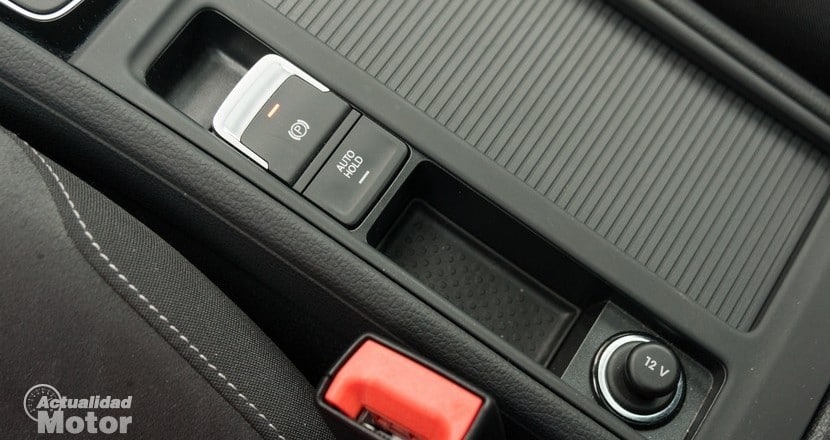
Electric Parking Brake and Auto Hold
On the opposite side are two of our unit's optional driving assistance systems, such as adaptive cruise control and Active Lane Assist. The first one works correctly in all kinds of situations, although it cannot operate as a normal cruise control. The second is the involuntary lane change system that I like the most of all those on the market.
Active Lane Assist is one of the most intrusive on the market, as it move the steering wheel to keep the car between the lines, although it is less annoying than constant beeps and vibrations. It works very well and can save us from scares. If it is advisable to disconnect it on roads with curves in which we drive very close to the edges, because the steering wheel will make small movements trying to correct the trajectory, and although it is not dangerous because we have much more strength to cancel the automatic orders, it is not the most pleasant .

In terms of consumption, this 2.0-liter Volkswagen Golf TDI lives up to the reputation of efficient of these diesel engines. Although the tested model homologates 4,4 liters of average consumption (4,1 the manual) the only way to approach these figures will be by driving on highways and motorways, where reach 5.0 liters It's child's play. In mixed routes the figures will be slightly higher, between 6.0 and 6.5 liters. In any case, it is a frugal car and we can take good advantage of its 50-liter tank.
You can find more information about the Volkswagen Golf 2.0 TDI Sport 150 hp DSG in the part of exterior and interior design and in the analysis of price and equipment.





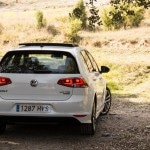




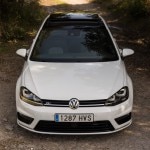
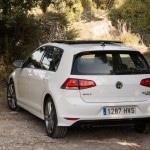


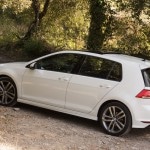
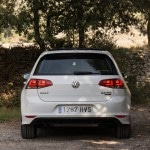

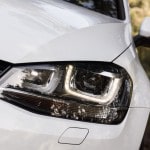

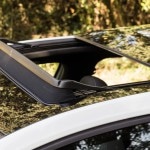





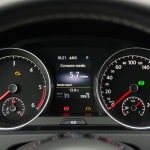






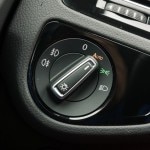
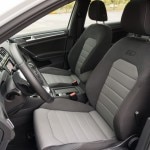




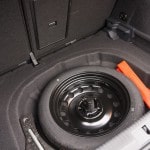
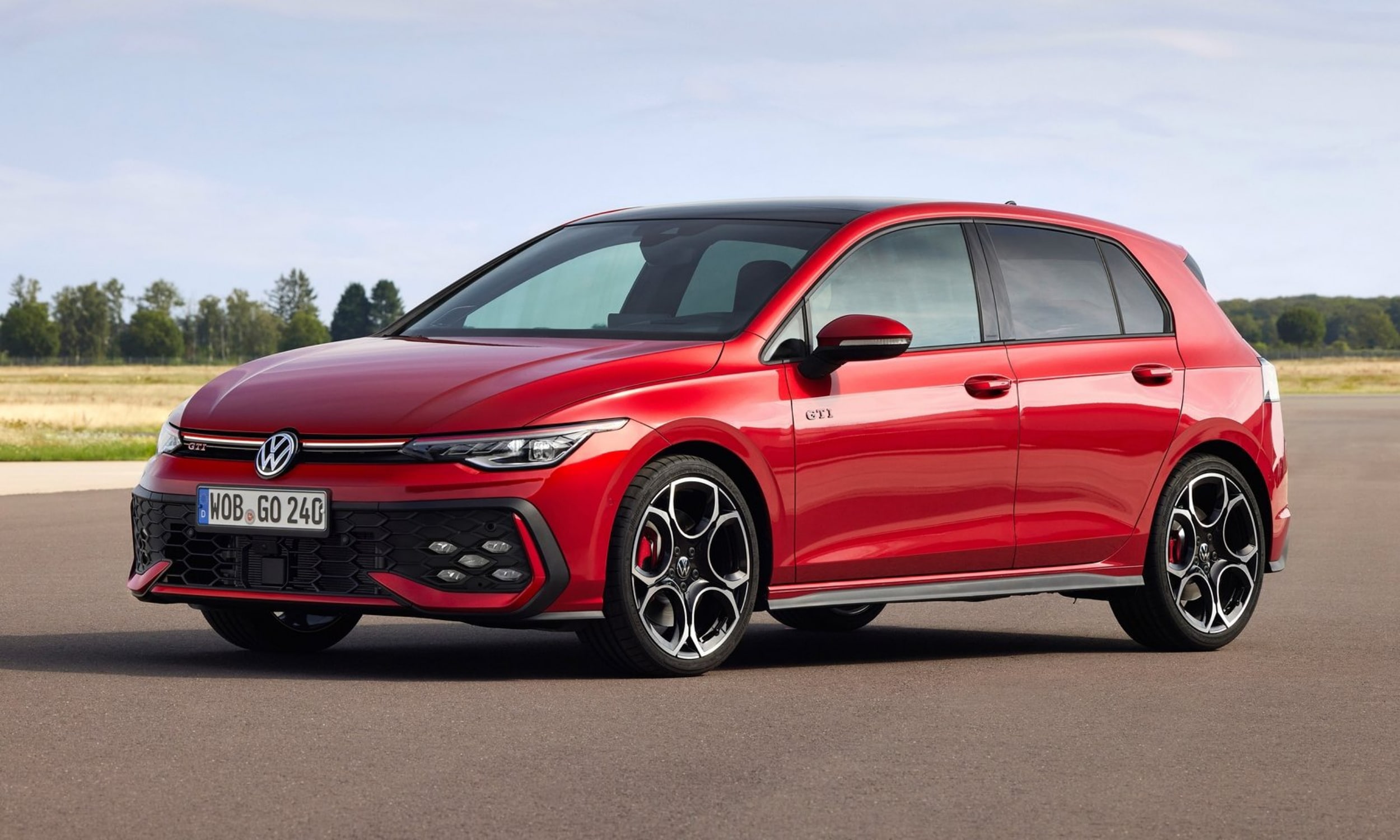
I want to reprogram my tdi 150 cv with more horses